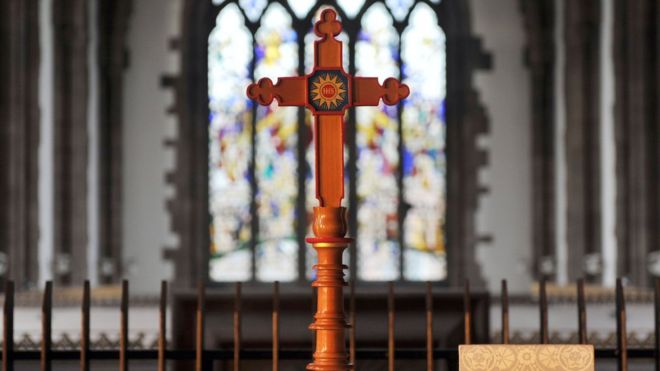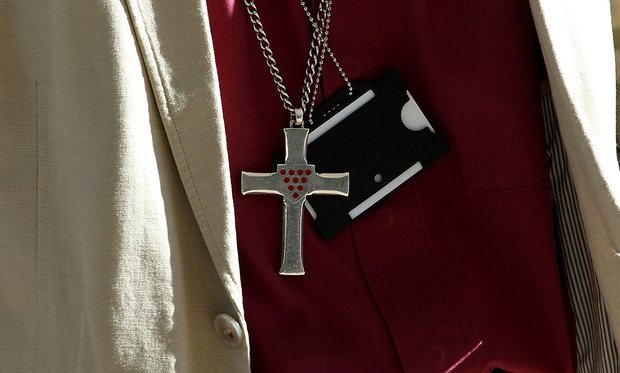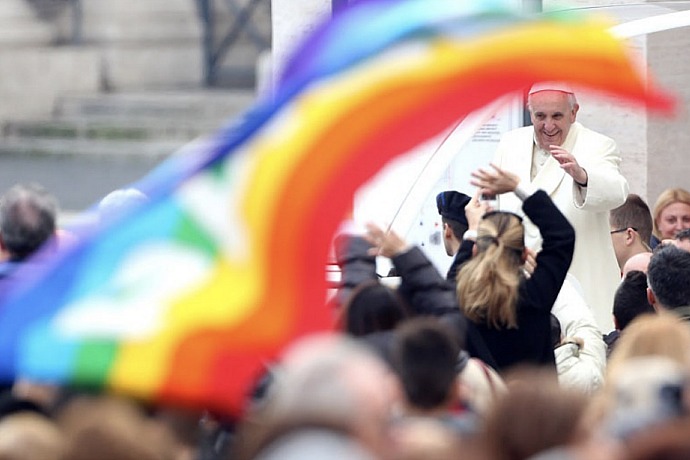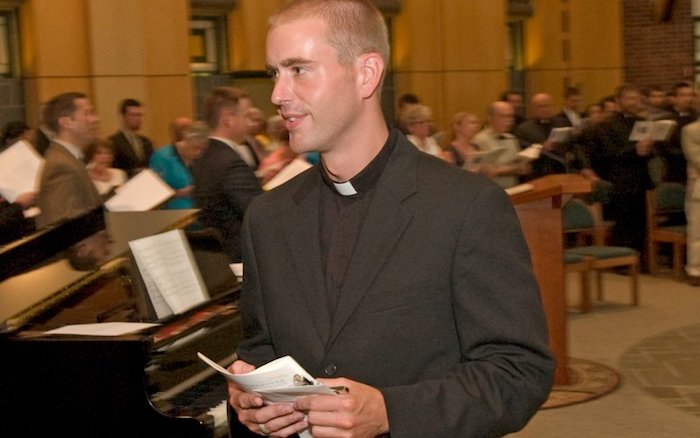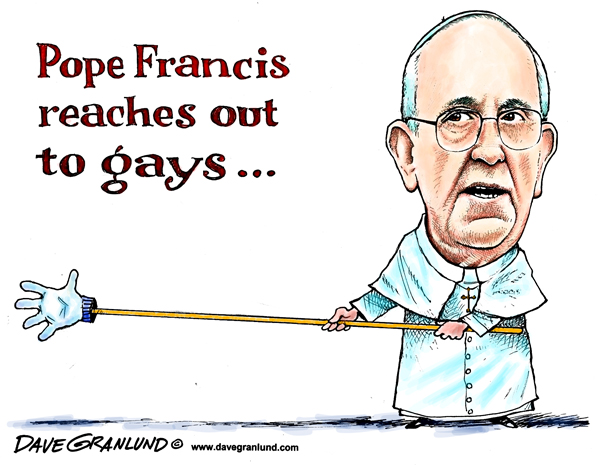Synod’s rejection of the same-sex marriage report shows the problem of having glorified administrators focused on unity at the head of the church
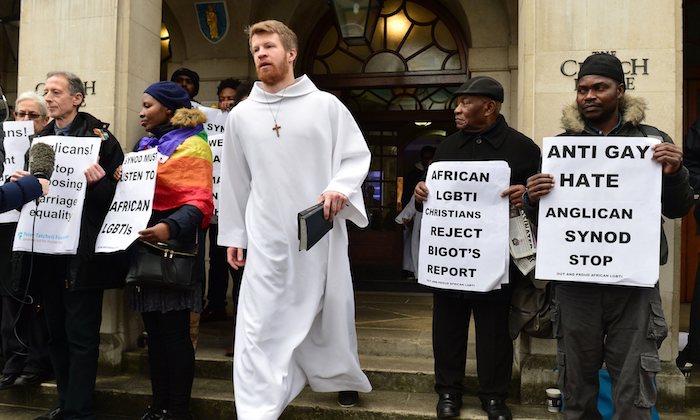
By
It rained in London on Wednesday afternoon. Then the sun came out. And so it was that when the General Synod of the Church of England met to discuss the acceptability of same-sex marriage, a huge rainbow appeared over Church House, Westminster. Even God, it seems, was making his feelings known on this one.
The bishops had produced a report after a three-year listening process. This itself was just another kicking-into-the-long-grass exercise. After all, who can refuse listening? So church reports that seek no change always call for another report and more listening. But had anybody heard anything useful? The report called for a “change of tone” towards LGBTI people – yes, they always do that, and always in the same patronising tone – but no change of doctrine. The bishops refused to budge on the question of same-sex couples getting married in church. And so the clergy of the C of E threw the report out, leaving the bishops angry and embarrassed.
Recalling the story of Jacob wrestling with the angel in the book of Genesis, Canon Simon Butler – gay, out and partnered – told synod: “I will not let go until you bless me.” Those of us wrestling for equal marriage will not stop until gay people are offered the church’s blessing. We bless battleships with missiles. But not the love between two people. And the problem here is not the clergy or the people in the pews. The problem is the bishops themselves, tense with self-imposed anxiety.
On the same day the report was being sunk by synod, a British Social Attitudes survey found that only 17% of Anglicans now believe that same-sex relationships are “always wrong”, the lowest level since 1983 when people started measuring these views. Back then, the figure was 50%. In the intervening years churchgoers, like the population in general, have dramatically changed their mind over homosexuality. And hurrah for that.
But don’t believe that this is all the church wants to talk about. In my parish, it’s a non-issue. We’ve had openly gay clergy ministering here and many gay people in the pews. While the bishops take themselves away to discuss fictional case studies involving problematic gay-related situations (NB don’t say problem gay people – that’s all part of the “change of tone” directive), we in the parish just get on with doing the stuff we’re supposed to. No, the problem is within the episcopate. They voted 43-1 for the report. And the one who voted against wasn’t some brave bishop registering dissent. It was the bishop of Coventry who couldn’t figure out how to work his voting console.
Such is the high degree of corporate responsibility the bishops feel, that even those sympathetic to same-sex marriage voted for a report that condemned it. Thus the bishop of Liverpool wrote: “For some, the sense of betrayal is particularly acute when applied to people like me, who have spoken of the need for change in the church. Where was I? What happened to my voice? How could I have been so weak as to stand with this document?”
The answer is always the same. The job of the bishops, the current lot insist, is to provide a “focus of unity”. That’s why when bishops retire, and are freed from the responsibility of keeping their dioceses together, they write letters to the papers saying how much they disagreed with what they used to have to support. The bishops tell themselves that they sacrifice their personal views for the greater good. And they ask us to feel their pain. Responsibility for the way in which this need for corporate double-speak has blunted the prophetic witness of the episcopate is squarely on the shoulders of the secretive process by which bishops are selected. It’s a process that promotes the same sort of people – glorified administrators who are good at “tone” and are not given to bursts of independent mindedness. None of which are qualities associated with the prophets of the Bible.
What Wednesday’s synod vote revealed was not only that the church continues to move in a progressive direction – though with the engine of a lawnmower and the brakes of an articulated lorry. It also demonstrated the widening gap between bishops and their clergy. The C of E works best at the local level. Head office is out of touch.
Complete Article HERE!

